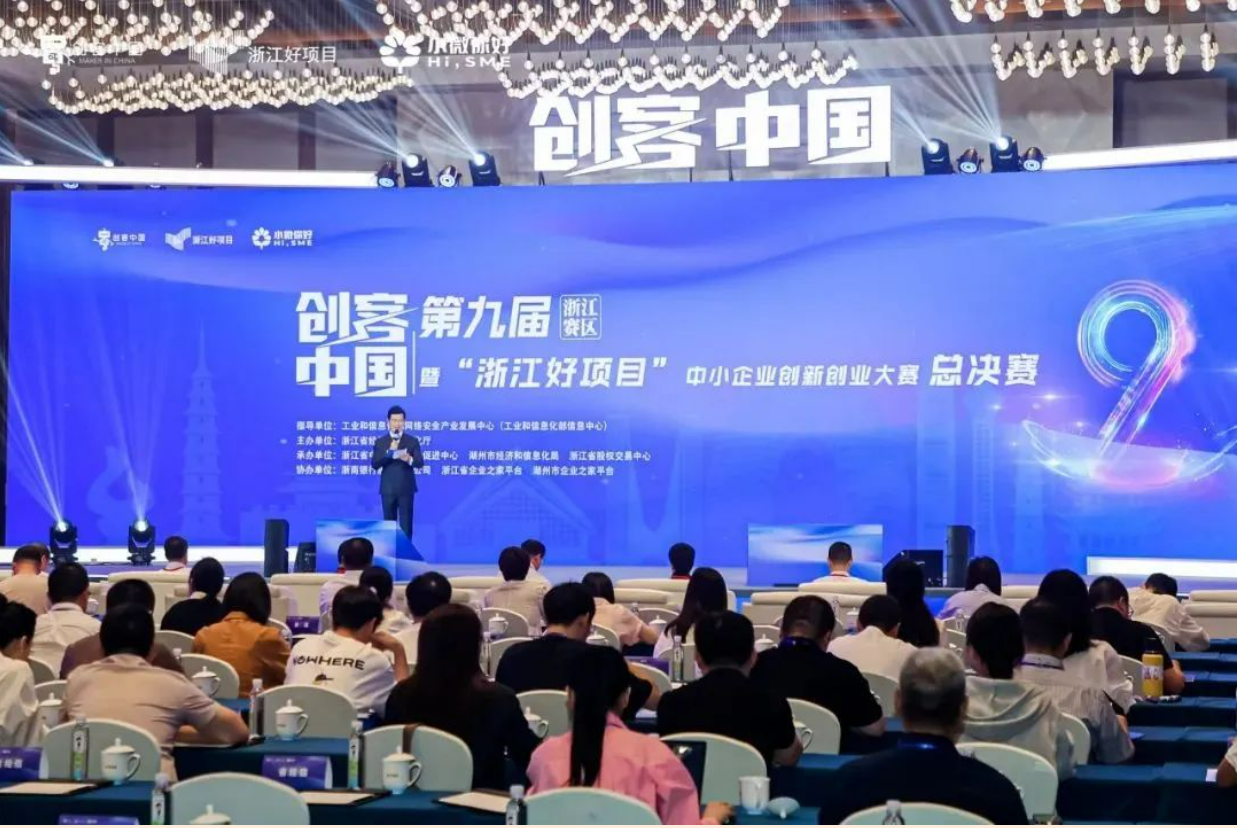From October 31st to November 1st, 2024, the China International Minor Metals Forum was held grandly at the Kunming Century Jinyuan Hotel in Kunming, Yunnan Province. As a leading enterprise in the field of rare metals, Zhuji Hongde New Materials Co. Ltd was invited to attend and delivered an important speech titled “Analysis of Trends and Prospects for Rhenium Applications,” which won widespread praise and high acclaim from the participants.
In the speech, Zhang Yangying, the general manager of Zhuji Hongde New Materials Co. Ltd, comprehensively analyzed the current application status and prospects of rhenium invarious industries such as aerospace, catalysis, semiconductors and electronics, industrial metallurgy, and more. She pointed out that the domestic recovery of rhenium resources currently faces certain challenges, including low recovery levels of rhenium resources by copper and molybdenum production enterprises, early-stage research and development of high-temperature master alloy recovery technologies, high costs production volumes in rhenium recovery processes by hazardous waste enterprises, and relatively concentrated ammonium perrhenate procurement and rhenium metal production, leading to a stable decline in terminal market prices and affecting the enthusiasm of the raw material industry.
However, Zhang Yangying emphasized that these challenges have not hindered the broad applications and prospects of rhenium in multiple fields. In the aerospace industry, the metal and gaseous impurities of rhenium have a significant impact on the qualification rate of single-crystal blades and the service life of engines. With continuous breakthroughs in global supersonic and space travel technologies and increasing engine thrust, the application growth trend of nickel-based rhenium-containing superalloys is significant. According to industry forecasts, the global demand for rhenium resources will increase by more than 2 times in the next 10 years.
In the catalysis field, rhenium is widely used in reforming reactions to increase the yield of gasoline, aromatics, and hydrogen. Due to its high purity, high melting point, strong corrosion resistance, and excellent electrical and thermal conductivity, rhenium is the preferred catalyst for core technologies in the development of green hydrogen, such as electrolyzers and fuel cells.
In the semiconductor and electronics field, rhenium heaters play a crucial role in the MOCVD process. Precise temperature control is a core requirement for achieving high-quality thin-film deposition, and rhenium heaters can quickly and uniformly transfer heat, ensuring that the temperature inside the reaction chamber reaches a highly precise and stable state, creating an ideal environment for crystal growth and thin-film deposition. At the same time, the use of rhenium heaters reduces production costs and improves production continuity and stability.
In the field of industrial metallurgy, rhenium, as an alloy additive, can significantly improve the strength, toughness, fatigue resistance, and wear resistance of metallic materials. Especially when rhenium is added to tungsten-molybdenum alloys, it can overcome the brittleness tendency of metals after recrystallization, improve metal formability and weldability, and provide better robustness and stability to meet the demands of high-temperature, high-pressure, and harsh working environments.
In addition, Zhang Yangying also introduced the application prospects of rhenium in emerging fields such as additive manufacturing and medical devices. With the implementation of China’s 2035 strategy to become a powerful nation in new materials, additive manufacturing technology has entered a new stage of innovative development. With in-depth research on high-temperature refractory metals in additive manufacturing, the technology’s maturity is continuously improving, and it will gradually be applied to important aerospace components, contributing to leapfrog development in China’s future aerospace engine technology. In the medical device field, molybdenum-rhenium alloys have been widely used in orthopedics, neurosurgery, cardiac surgery, and stomatology due to their excellent strength, toughness, fatigue resistance, ductility, and good biocompatibility and stability, bringing better treatment effects and comfort to patients.
Finally, Zhang Yangying emphasized the importance of seeking new rhenium resources and improving resource recovery and utilization rates. She stressed that improvements in material-to-component technology levels will more rapidly and comprehensively promote the diversified development of rhenium applications, providing a solid technical reserve for national defense. Understanding the research and development trends, process equipment, technology applications, and trends of core rhenium production technologies at home and abroad is crucial for enterprises to upgrade product technical specifications and improve market competitiveness.
This speech not only demonstrated Zhuji Hongde New Materials Co., Ltd.’s profound strength and forward-looking vision in the field of rhenium applications but also provided a useful reference for promoting the sustained and healthy development of the rare metals industry.


